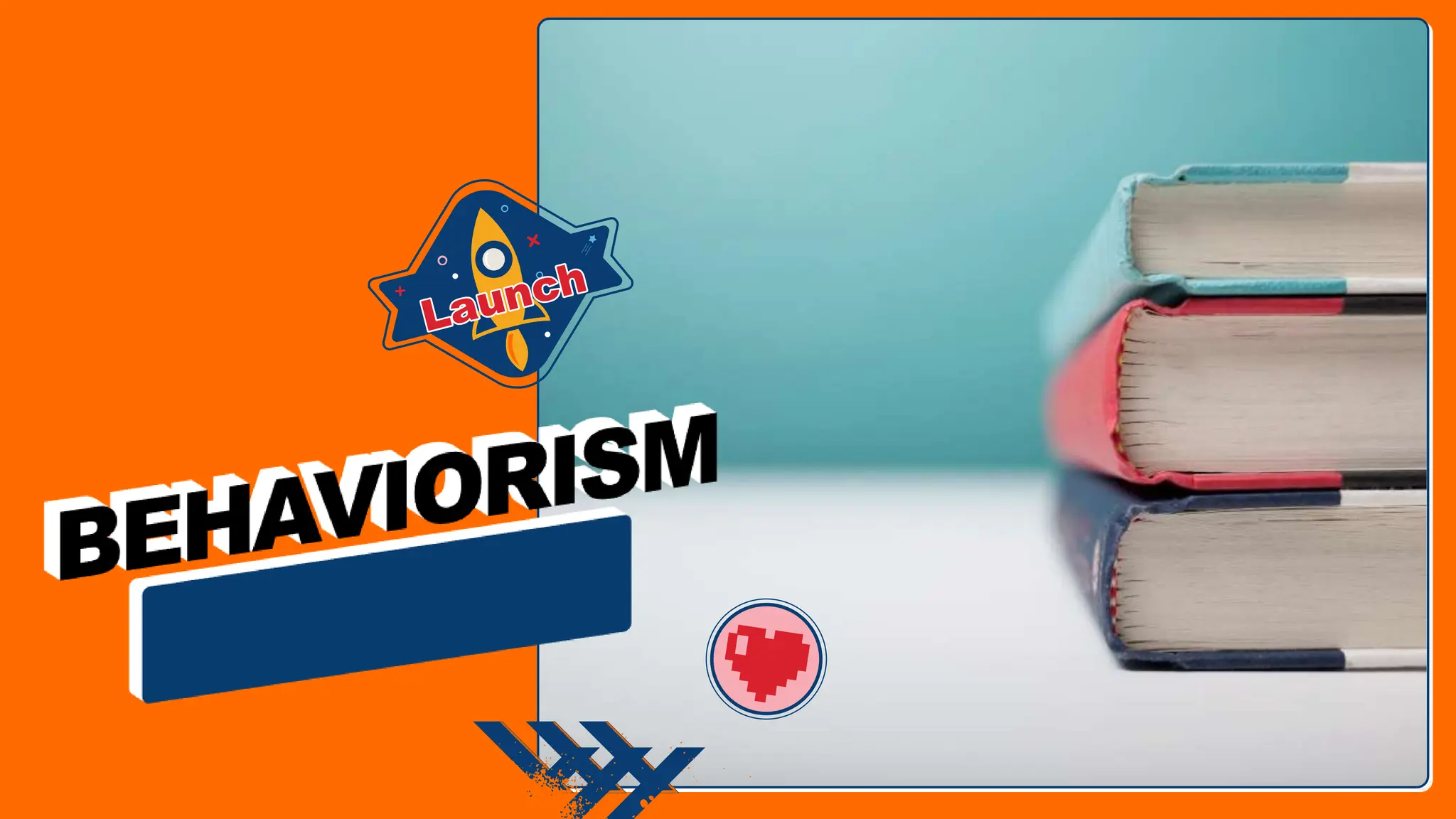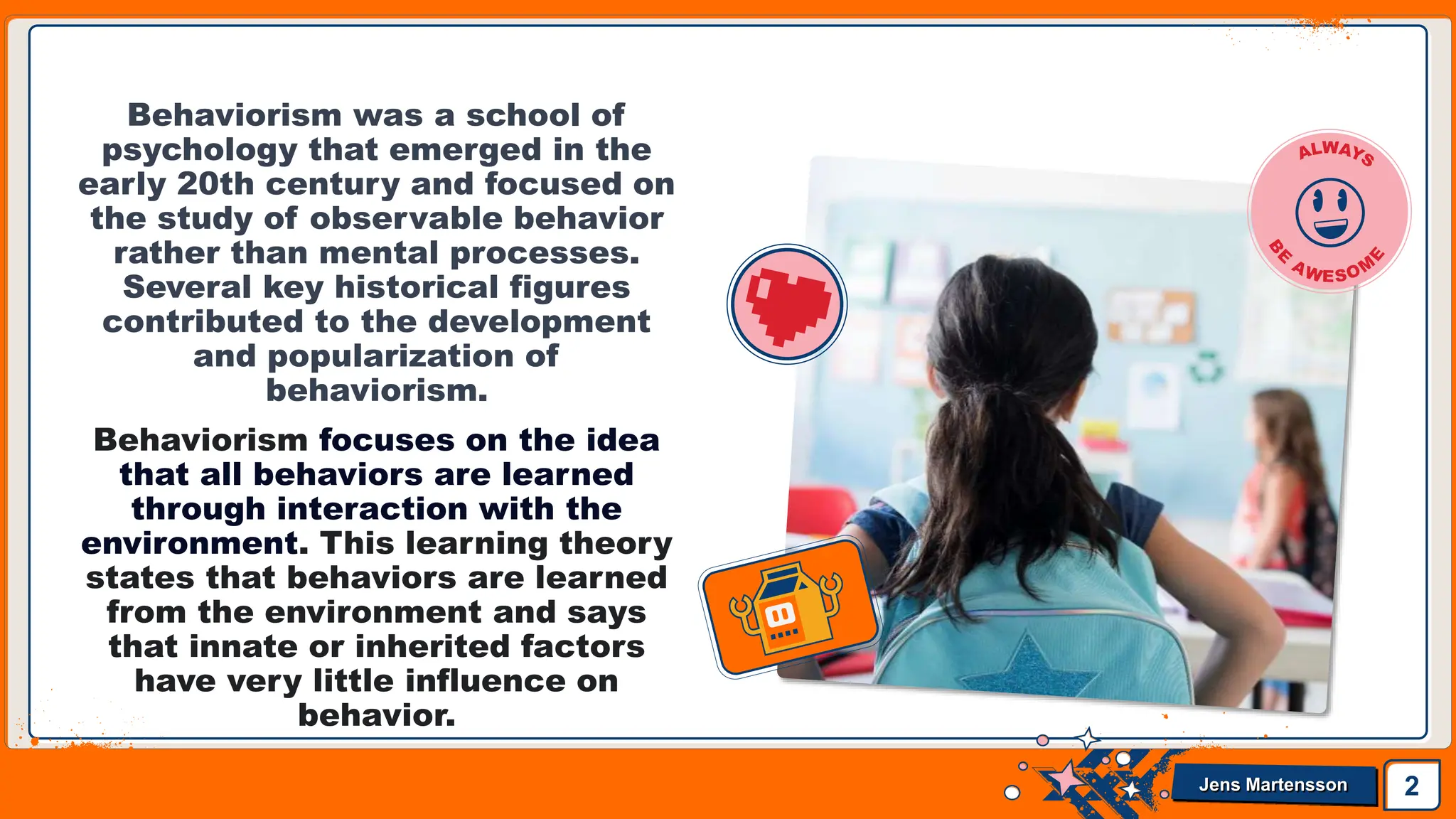Behaviorism emerged in the early 20th century and focused on observable behavior rather than mental processes. Key figures like Ivan Pavlov, Edward Thorndike, John Watson, and B.F. Skinner contributed influential work through experiments in classical and operant conditioning that shaped behaviorism as a major psychology paradigm. Their work emphasized that behavior is learned through interaction with the environment and reinforcement or punishment of stimuli-response relationships.






















